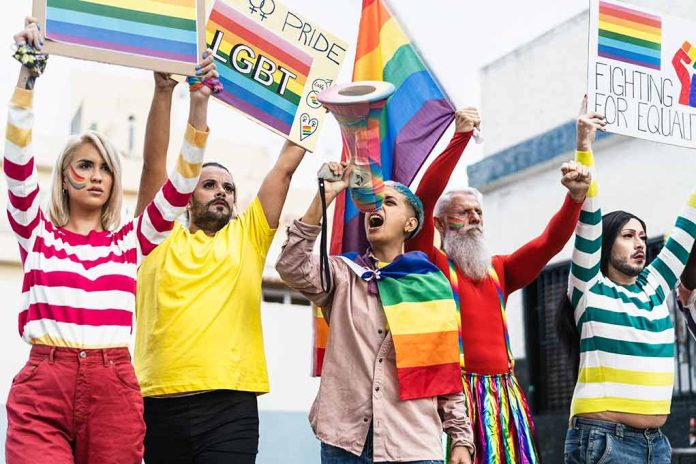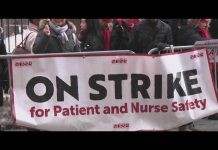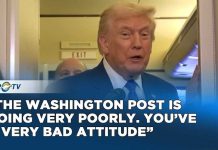
Corporate America’s massive withdrawal from Pride sponsorships leaves LGBTQ events scrambling for funding while parents fight for their right to shield children from gender ideology in schools.
Key Takeaways
- Corporate sponsorships for LGBTQ Pride events nationwide are drastically declining, with 39% of major companies planning to reduce Pride-related engagement due to political pressure
- South Florida Pride organizers are facing significant budget shortfalls while simultaneously dealing with increased security costs
- The Supreme Court is currently hearing Mahmoud v. Taylor, a landmark case pitting parents’ religious freedom against schools’ authority to mandate LGBTQ curriculum exposure
- Some corporations continue supporting Pride events but have gone “underground” with their sponsorships to avoid public controversy and consumer backlash
- Local governments in Florida are navigating complex political terrain when deciding whether to support Pride events in light of state legislation
Corporate America Retreats from Pride Sponsorships
Pride month parades and festivals across America are feeling the financial squeeze as corporate sponsors pull back their support in unprecedented numbers. According to a 2025 Pride Pulse Poll, 39% of major companies plan to reduce Pride-related engagement, citing pressure from the Trump administration’s stance on diversity initiatives. This corporate retreat has created significant funding gaps for Pride organizers nationwide, who must now scramble to maintain their events with diminished resources while simultaneously facing increased security costs in a more politically charged environment.
“I don’t believe there’s a single Pride organization in this country that has not seen a drop in financial contributions,” said Rob Legere, executive director of the Pride Center.
South Florida Pride events have been particularly hard hit. Palm Beach Pride reported spending an additional $15,000 on security measures, while Wilton Manors’ Stonewall event is implementing metal detectors at a cost of $35,000. These security expenses come at the worst possible time, as major corporate sponsors like American Airlines and Amazon have withdrawn their support. While some companies like Target have returned as sponsors despite past controversies, many businesses are choosing to provide support discreetly, without public acknowledgment, to avoid potential backlash from consumers.
The Political Climate Driving Corporate Decisions
The strategic retreat of corporate sponsorships from Pride events reflects a significant shift in America’s political landscape. Under President Trump’s administration, companies are recalibrating their approach to diversity initiatives, particularly those involving LGBTQ issues. This shift isn’t merely coincidental – it represents a deliberate response to the administration’s clear messaging on these matters. Corporations, always sensitive to political winds and consumer sentiment, are making calculated decisions about where to allocate their marketing dollars in this new environment.
“Corporations have been pulling back on sponsorship of Pride rallies in response to the (Trump) administration’s attacks on diversity,” said Stephen Gaskill, a South Florida LGBTQ activist.
In Florida, the political dynamics are particularly complex. Governor Ron DeSantis’ administration has championed legislation like the Parental Rights in Education Act (dubbed by critics as the “Don’t Say Gay” law), creating an environment where local governments must carefully consider their support for Pride events. While municipalities like Delray Beach ultimately maintained funding for Pride celebrations, they did so only after serious debate about potential state repercussions. This tension between local support and state policy illustrates the challenging political terrain that Pride organizers must navigate.
Parents’ Rights vs. LGBTQ Curriculum: A Supreme Court Showdown
While Pride events grapple with funding challenges, a landmark Supreme Court case is raising fundamental questions about parental rights in relation to LGBTQ content in schools. In Mahmoud v. Taylor, Muslim, Orthodox Christian, and Catholic families are challenging a Maryland school district’s refusal to allow parents to opt their children out of lessons featuring LGBTQ characters. The case has far-reaching implications for parental authority, religious freedom, and the boundaries of public education in America.
“The child is not the mere creature of the state; those who nurture him and direct his destiny have the right, coupled with the high duty, to recognize and prepare him for additional obligations,” wrote the Supreme Court in its 1925 Pierce v. Society of Sisters decision, which is now being cited in this case.
The Montgomery County, Maryland, controversy began when the school district included LGBTQ inclusive storybooks in the curriculum. Initially, parents with religious objections were allowed to opt their children out of these lessons, but the district later reversed this policy, citing concerns about absenteeism and potential stigmatization. While lower courts ruled in favor of the school board, the Supreme Court agreed to hear the case, with several justices appearing sympathetic to the parents’ religious freedom claims. The Court’s ruling, expected by early July 2025, could redefine the balance between parental authority and educational institutions’ autonomy.
The Broader Cultural Reckoning
The parallel developments of corporate withdrawal from Pride events and the Supreme Court case on parental rights signal a significant cultural realignment in America. After years of accelerating progressive social policies, particularly regarding LGBTQ issues, we’re witnessing a meaningful recalibration that prioritizes parental authority and respects the concerns of families with traditional values. This shift reflects the Trump administration’s commitment to protecting children from ideological indoctrination while respecting the diverse religious and moral convictions of American families.
A dissenting judge in the lower court proceedings noted that the school policy forces parents “to make a choice, either adhering to their faith, or receiving a free public education for their children.”
As corporations reassess their public alignment with LGBTQ causes and the Supreme Court deliberates on the boundaries of parental rights, we’re witnessing a fundamental rebalancing of competing interests in American society. The outcome of both these developments will shape how our nation approaches the delicate intersection of parental authority, religious liberty, corporate social responsibility, and the exposure of children to contested social and moral viewpoints in the years ahead. What seems clear is that the pendulum is swinging back toward respecting the primacy of the family unit in guiding children’s moral and social development.














